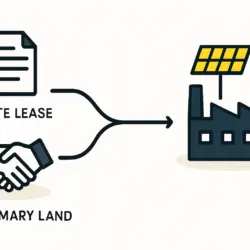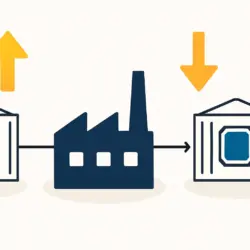Papua New Guinea’s National Energy Authority (NEA) has announced five new renewable energy policies aimed at promoting clean energy deployment across the country. These policies focus on hydropower, bioenergy, wind, solar, and geothermal energy, with the goal of transitioning PNG towards a more sustainable energy future. The NEA unveiled these policies to guide the use of renewable energy in Papua New Guinea.
PNG Renewable Energy Policies: Key Objectives
The five policies center on hydropower, bioenergy, wind, solar, and geothermal energy. These initiatives aim to enhance rural electrification, reduce emissions, and promote sustainable energy. They also focus on developing the cost-effective potential of these energy sources and ensuring that projects align with international standards.
The policies aim to increase electricity access and ensure that 78 percent of the population has access to electricity by 2030. They also aim to make the energy sector more efficient by promoting the use of renewable energy sources and reducing PNG’s carbon footprint by 50 percent by 2030. The policies also promote energy efficiency by encouraging the adoption of cleaner technologies.
The policies aim to improve the livelihoods of people in rural areas by providing them with access to electricity. They also aim to reduce the negative impacts of energy production and consumption by promoting the use of cleaner technologies.
Strategic Implementation of PNG Renewable Energy Policies
The policies focus on strategic implementation by ensuring that projects comply with international standards. They also promote energy efficiency by encouraging the adoption of cleaner technologies. Additionally, the policies aim to diversify PNG’s energy sector by increasing the share of renewable energy sources in the country’s energy mix.
The policies aim to reduce the country’s dependence on fossil fuels and promote the development of a more sustainable energy sector. This will help to reduce PNG’s carbon footprint and promote the use of cleaner technologies.
The policies also aim to promote the development of a more efficient energy sector by encouraging the adoption of renewable energy sources. This will help to reduce the country’s dependence on fossil fuels and promote the use of cleaner technologies.
Support From International Partners for PNG Renewable Energy Policies
The policies have received support from international partners such as the International Renewable Energy Agency (IRENA) and the Asian Development Bank (ADB). These organizations have provided technical assistance and financial support to help PNG implement the policies. They have also provided expertise in renewable energy development to ensure that the policies are implemented effectively.
The support from these organizations has helped PNG to develop the policies and implement them effectively. This has helped to ensure that the policies are aligned with international standards and that they promote the development of a more sustainable energy sector.
The support from IRENA and the ADB has also helped PNG to develop the necessary infrastructure to support the implementation of the policies. This has helped to ensure that the policies are implemented effectively and that they promote the development of a more sustainable energy sector.
Funding and Financial Support for PNG Renewable Energy Policies
The government of PNG has allocated funding for the implementation of the policies. The ADB has also provided financial support for the development of renewable energy projects in PNG. This funding will help to ensure that the policies are implemented effectively and that they promote the development of a more sustainable energy sector.
The funding from the government of PNG will help to support the implementation of the policies and ensure that they are aligned with international standards. This will help to promote the development of a more efficient and sustainable energy sector in PNG.
The funding from the ADB will help to support the development of renewable energy projects in PNG. This will help to ensure that the policies are implemented effectively and that they promote the development of a more sustainable energy sector.
Future Prospects for PNG Renewable Energy Policies
The implementation of the policies is expected to lead to a significant increase in renewable energy capacity in PNG. This will help the country to reduce its carbon footprint and promote sustainable development. The policies will also help to improve energy access in rural areas and promote economic development.
The implementation of the policies is expected to lead to a significant increase in renewable energy capacity in PNG. This will help the country to reduce its carbon footprint and promote sustainable development. The policies will also help to improve energy access in rural areas and promote economic development.
The implementation of the policies is expected to lead to a significant increase in renewable energy capacity in PNG. This will help the country to reduce its carbon footprint and promote sustainable development. The policies will also help to improve energy access in rural areas and promote economic development.
The NEA’s announcement of the five renewable energy policies marks a significant step towards achieving PNG’s energy goals. With the support of international partners and the commitment of the PNG government, these policies are expected to drive the country towards a more sustainable and resilient energy future.



